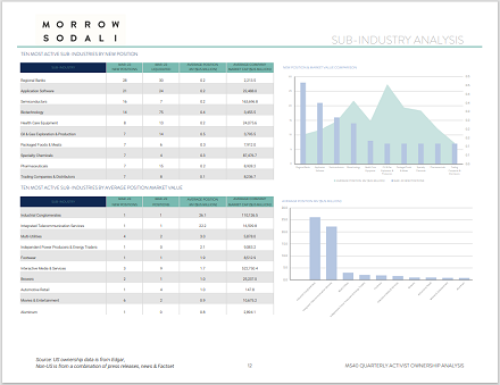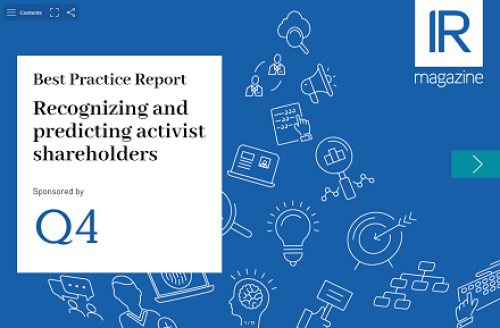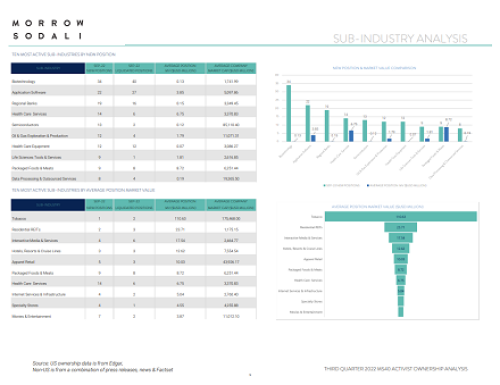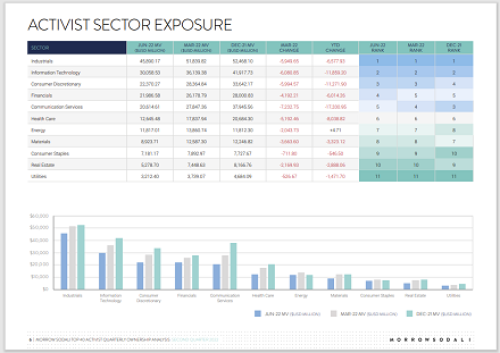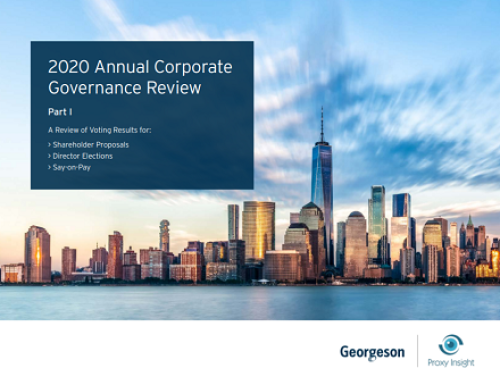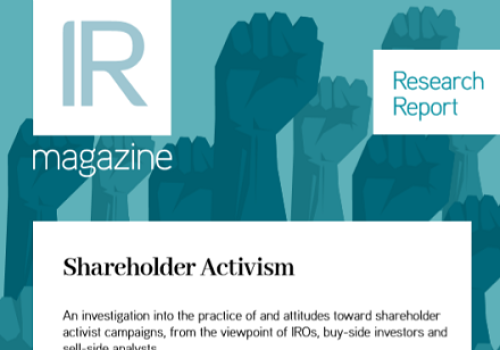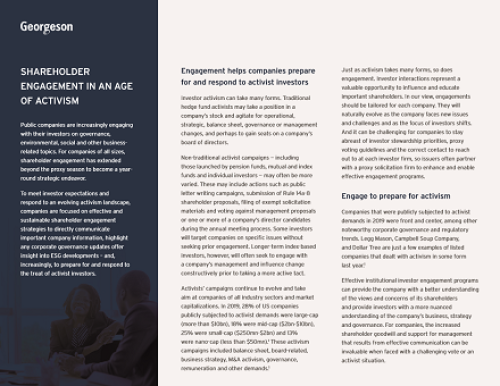IROs are the first line of defense for European companies facing the sustained threat of shareholder activism, according to Activistmonitor.
Financially healthy companies in sectors such as industrials, chemicals, consumer and pharmaceuticals are expected to be increasingly targeted by activist investors in 2019, according to the ‘Full-Year Review 2018 – Activism in Europe’ report.
There has been significant pickup (156 percent) in the number of new live campaigns in the industrials sector, the research finds. Financials was the second-busiest sector in 2018 but witnessed a 9 percent slowdown compared with 2017.
The UK remains the busiest European country for activists in 2018 with 23 live campaigns launched. France and the Czech Republic saw a pickup in activity in 2018. Switzerland, Italy and Germany saw continued activity in 2018, although levels of activity were lower than those seen in 2017.
Board and management changes were at the top of activists’ lists of demands in 2018, the research suggests.
‘Activists tend to target board and management changes because such changes can be easily shown to benefit all shareholders, not just the activist that can often be dismissed as being selfish and short-termist,’ William Mace, assistant editor at Activistmonitor, tells IR Magazine.
To prepare for these changes, boards and IROs should ensure their companies are aware of the presence of activists and the types of demands they are likely to make, he suggests, adding that this is especially important when it comes to IROs knowing the strengths and weaknesses of their company.
‘Being open with investors about how the company is addressing its vulnerabilities to activism is an important step and is worth paying more than just lip service to,’ he says.
‘Activists need the support of passive investors to decide the fate of any activism campaign, so it’s important for the company to engage with long-term investors in a meaningful way long before an activist discloses an [equity] stake. Such preparation starts on the company’s board, so having a director who challenges the boardroom and the organization to think like an outsider activist is also key.’
Challenges of activism
According to Mace, activism in Europe will continue to grow as an ‘investment strategy’ and as a ‘challenge for companies to negotiate.’ Looking ahead, he suggests 2019 will see local European activists continue to be active in their home markets where they have mid-sized targets, cultural knowledge and established networks.
‘American activists will also become more open to European and UK investments, as volatile markets provide the kind of value dislocation they feed off,’ Mace adds. ‘Activists will continue the recent trend of trying to force companies to review their asset portfolios and spin off or sell businesses that could be valued more highly by the market.’
This year will also see activists continue to screen European companies for corporate governance weakness. Mace notes that the governance standards of European markets are undergoing changes in preparation for the implementation of the Shareholder Rights Directive II in June, which looks to strengthen the position of shareholders.
‘This means there are new grounds on which an investor can legitimately question a company director’s independence, remuneration, length of tenure or number of board mandates, among other things,’ he explains.
‘The emergence of US and UK institutional investors in the ownership of European companies, and the influence of proxy advisory firms like ISS and Glass Lewis on those investors, has also provoked more scrutiny of governance standards across the board.’
Activism in Europe will continue to grow as ‘investment strategy’ and ‘challenge for companies to negotiate’, says expert


